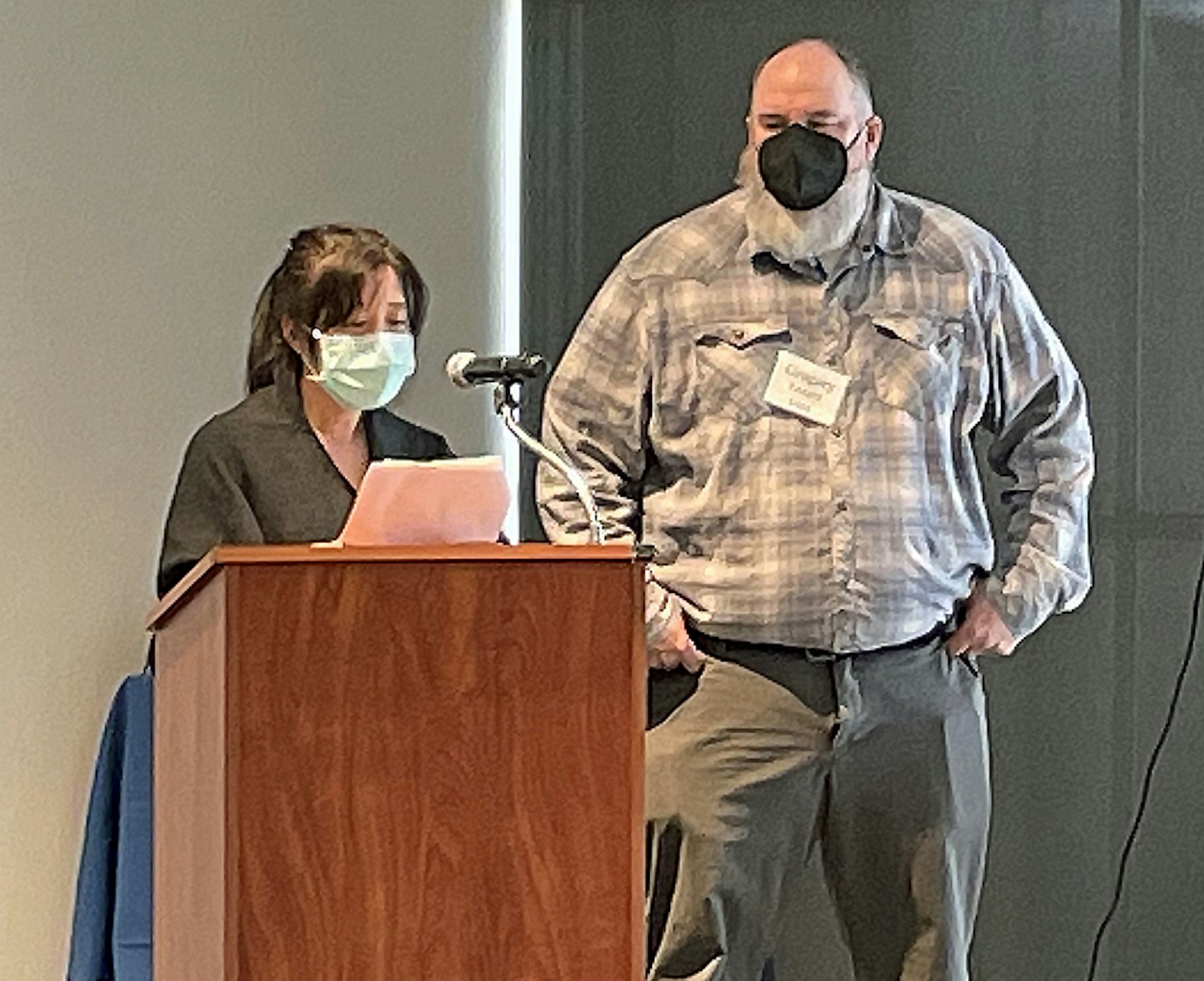Associate professor of information studies lauded for his collegial and compassionate support.
Gregory Leazer, UCLA associate professor of information studies, was inducted into the inaugural cohort of the UCLA Faculty Mentoring Honorary Society on May 19 at the UCLA Faculty Club. He was nominated for this recognition by Safiya U. Noble, professor of African American studies and information studies, and Robert D. Montoya, assistant professor of information studies and director of the California Rare Book School at UCLA.
“The unique faculty on the UCLA campus is in no small way a testament to the support and advocacy that Professor Leazer has provided us, each in our own way,” wrote Professors Noble and Montoya in their nomination letter. “Greg’s goodwill and warm personality were without a doubt, part of the reason each of us joined this faculty, and it is because of Greg that we continue to work tirelessly on the faculty of the UCLA community.”
The inaugural group includes 12 full-time faculty members who have given of their time and expertise to mentoring early and mid-career underrepresented faculty at UCLA, with respect to identities such as race, ethnicity, sexual orientation, gender, and disability. The Faculty Mentoring Honorary Society is supported by Associate Vice Chancellor Margaret Shih, Research and Bruin Engagement, UCLA Office of Equity, Diversity and Inclusion; Associate Vice Chancellor of Faculty Development Chris Dunkel Schetter; and Vice Provost David K. Yoo, UCLA Institute of American Cultures.
“The mentoring thing is funny, because I always thought I was just being a friend,” says Professor Leazer. “I always just thought of myself as just trying to help out, being a sounding board and being someone that people could … complain to or laugh with because we need that. I am glad to see that [UCLA] is recognizing service in this way.”
Leazer, who has taught at UCLA for 25 years, says that as a new faculty member, he had a series of, “… people that I always felt confident… sharing [with]. People that have both the temperament, knowledge about the organization and what it is to be a professor.”
“Jonathan Furner was definitely that person for me,” says Leazer. “Even though we were appointed about the same time, it wasn’t a formal, older guy – younger person mentorship. Virginia Walter was another great person. I could just go into her office and close the door and put my head down on the table: ‘I screwed this up, I need your advice’ kinds of situations.”
Professor Leazer says that despite his long career at UCLA, he gains from being a mentor as much as his mentees gain from his years of experience.
“The best times are when you’re colleagues,” says Leazer. “I’m been around a bit longer, but [Rob is] not a brand-new baby assistant professor, same for Safiya. They have had long professional careers, and I think of them as having comparable levels of life experience, although dfferent from mine. I learn from them in that regard, as much as I’ve ever given [them].”
Professor Leazer’s research interests include bibliographic control, organization of information, bibliographic works and relationships, and cataloging and classification. Recent publications include serving as co-editor of a special issue of “Knowledge Organization on the Politics of Classification” (2019) with Professor Montoya, and the article, “Feeling Documents: Toward a Phenomenology of Information Seeking,” (with Patrick Keilty, 2018) for the Journal of Documentation.
Leazer achieved his doctorate of liberal studies and his master’s degree at the School of Library Service at Columbia University. He is currently working on a project to establish Kosovo’s first training program for librarians to promote the nation’s cultural institutions and heritage with Professor Montoya and UCLA doctoral student and CSU Northridge instructor Sean Pessin. Earlier this year, Professor Leazer was awarded a research agenda pilot grant by the Association for Library Service to Children (ALSC), a division of the American Library Association. His project will address the Diversity, Equity, and Inclusion with Children and Families section of the ALSC Research Agenda, in search of an answer to questions around the barriers to library patronage and participation for underrepresented children and families.
